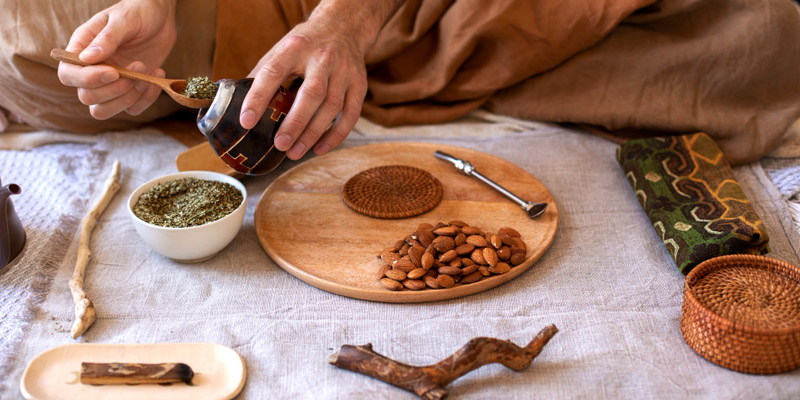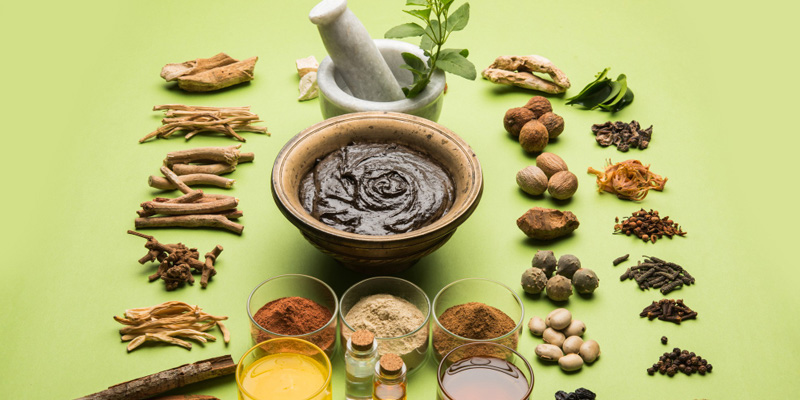
Are you tired of dealing with persistent fungal infections that just won’t go away? If so, it’s time to explore the world of Ayurvedic medicine and discover the best natural remedies to combat fungal infections effectively. In this comprehensive guide, we will delve into the best Ayurvedic treatment for fungal infection.
What is Fungal Infection?
Fungal infection is common ailments that affect millions of people worldwide. They can occur on various parts of the body, such as the skin, nails, scalp, or genitals. These are caused by the overgrowth of fungi, which thrive in warm and moist environments. While over-the-counter and prescription medications are available for treating every type of fungal infection, many individuals are turning to Ayurvedic treatments for their natural and holistic healing properties.
Ayurveda: A Holistic Approach to Healing

Ayurveda, an ancient system of medicine originating from India, focuses on achieving balance and harmony within the body, mind, and spirit. It emphasizes the use of natural remedies, lifestyle modifications, and dietary changes to promote overall well-being.
Ayurvedic treatments aim to address the root cause of an ailment rather than merely suppressing the symptoms. This holistic approach makes Ayurveda an excellent choice for treating fungal infections.
Causes and Symptoms of Fungal Infections

These can be caused by various types of fungi, including dermatophytes, yeasts, and moulds. Common causes include poor hygiene, a weakened immune system, excessive sweating, a humid environment, and wearing tight or non-breathable clothing. The symptoms of fungal infections can vary depending on the affected area but often include redness, itching, burning, swelling, and the appearance of rashes or blisters.
The Role of Ayurveda in Treating Fungal Infections
Ayurveda considers infections as an imbalance in the body’s doshas, primarily the pitta and kapha doshas. Ayurvedic treatments aim to restore balance by purifying the blood, boosting the immune system, and eliminating excess doshas. Ayurvedic remedies for fungal infections are known for their antifungal, antibacterial, and anti-inflammatory properties. They not only target the infection but also enhance the body’s natural defence mechanisms.
Best Ayurvedic Treatment for Fungal Infection

Fungal infections can be a pesky nuisance, causing discomfort and itching that can be hard to shake off.
Let’s delve into some intriguing Ayurvedic treatments and remedies that have been time-tested to fight against infections:
Turmeric: Nature’s Antifungal Powerhouse
Turmeric, commonly known as the “golden spice,” possesses remarkable antifungal properties. Its active compound, curcumin, exhibits potent antimicrobial and anti-inflammatory effects. Consuming turmeric internally or applying a paste made from turmeric and water to the affected area can help eliminate infections. Turmeric not only combats the infection but also soothes itching and reduces inflammation.
Neem: The Versatile Fungal Fighter
Neem, often referred to as the “wonder leaf,” has been used in Ayurveda for centuries due to its powerful antifungal, antiviral, and antibacterial properties. Applying neem oil or using neem-based soaps can effectively treat fungal infections. Neem not only helps eliminate the infection but also relieves itching and reduces redness.
Aloe Vera: Soothing and Healing
Aloe vera gel is well-known for its soothing and cooling properties. It also exhibits antifungal activity, making it a beneficial remedy for fungal infections. Applying aloe vera gel topically to the affected area can relieve itching, reduce inflammation, and promote healing.
Garlic: Nature’s Fungal Assassin
Garlic has been recognized for its potent antifungal properties for centuries. It contains a compound called allicin, which exhibits broad-spectrum antimicrobial activity. Consuming raw garlic or applying garlic oil to the affected area can effectively combat fungal infections. Garlic not only eliminates the condition but also helps alleviate itching and inflammation.
Tea Tree Oil: The Fungal Fighter from Down Under
Tea tree oil, derived from the leaves of the Australian tea tree, possesses powerful antifungal and antibacterial properties. Diluted tea tree oil can be applied topically to the affected area to fight fungal infections. It helps inhibit the growth of fungi and provides relief from itching and inflammation.
Tulsi (Holy Basil): Nature’s Protective Shield
Tulsi, also known as holy basil, has been revered in Ayurveda for its medicinal properties. It exhibits potent antifungal and immunomodulatory effects, making it an excellent remedy for any fungal infection. Drinking tulsi tea or using tulsi oil topically can aid in the treatment of fungal infections. Tulsi not only fights the infection but also strengthens the body’s immune response.
Coconut Oil: Moisturizing and Antifungal
Coconut oil contains a unique fatty acid called lauric acid, which exhibits potent antifungal and moisturizing properties. Applying coconut oil to the affected area can help soothe and heal fungal infections. It forms a protective barrier on the skin, keeping it moisturized and preventing further fungal growth.
Ginger: Nature’s Anti-Inflammatory Warrior
Ginger is renowned for its antimicrobial and anti-inflammatory properties. Consuming ginger tea or applying ginger juice topically can assist in treating fungal infections. Ginger not only helps combat the infection but also reduces inflammation, relieves itching, and promotes faster healing.
Liquorice: Calming and Antifungal
Liquorice root possesses potent antifungal and anti-inflammatory properties. It can be consumed as tea or applied topically to manage every fungal infection. Licorice not only helps eliminate the infection but also soothes itching and reduces redness and inflammation.
Triphala: The Three-Fruit Remedy
Triphala is a traditional Ayurvedic formula consisting of three fruits: amalaki, bibhitaki, and haritaki. This powerful combination supports overall digestive health and boosts the immune system, aiding in the elimination of fungal infections. Consuming Triphala internally can enhance the body’s natural defences and promote healing.
Panchakarma: Detoxifying and Rejuvenating
Panchakarma, a comprehensive Ayurvedic therapy, involves a series of detoxification and rejuvenation treatments. It helps remove toxins from the body, strengthens the immune system, and balances the doshas, thereby aiding in the treatment of chronic or severe fungal infections.
Panchakarma treatments are personalized based on an individual’s unique needs and may include therapies such as massage, herbal steam, and specialized diet.
By incorporating these Ayurvedic remedies into your treatment plan, you can effectively combat infections and promote overall well-being.
Ayurvedic Lifestyle and Dietary Recommendations

In addition to using Ayurvedic remedies, certain lifestyle and dietary changes can support the healing process. Maintaining proper hygiene, wearing clean and breathable clothing, and avoiding excessive sweating are crucial.
A balanced diet consisting of fresh fruits, vegetables, whole grains, and herbs can help strengthen the immune system and prevent infections.
Prevention Tips for Fungal Infections
To prevent any fungal infection, it is important to follow these tips:
- Keep the skin clean and dry.
- Avoid sharing personal items like towels or clothing.
- Wear clean, breathable, and moisture-wicking clothing.
- Use antifungal powders or sprays in susceptible areas.
- Practice good foot hygiene, especially in communal areas like swimming pools or gyms.
- Maintain a healthy diet and lifestyle to support a strong immune system.
Conclusion
Ayurveda offers effective and natural remedies for fungal infections. By addressing the root cause and providing holistic healing, Best Ayurvedic Treatment for Fungal Infection can alleviate symptoms, strengthen the immune system, and prevent recurrence.
Incorporating Ayurvedic remedies and lifestyle recommendations can provide long-lasting relief and promote overall well-being.
FAQs
Is Ayurvedic treatment best for every type of fungal infection?
Ayurvedic treatment is the best for every type of fungal infection, including those affecting the skin, nails, scalp, or genitals. However, it is important to consult with an Ayurvedic practitioner for personalized recommendations.
Can Ayurvedic remedies be used alongside conventional treatments?
Ayurvedic remedies can complement conventional treatments for every fungal infection. It is advisable to inform your healthcare provider about any Ayurvedic remedies you are using to ensure compatibility.
How long does it take to see results with Ayurvedic treatment for Fungal Infection?
The duration of Ayurvedic treatment can vary depending on the severity and type of fungal infection. Mild cases may show improvement within a few weeks, while chronic or severe infections may require longer treatment periods.
Are there any side effects of Ayurvedic remedies for fungal infections?
When used correctly and under the guidance of an Ayurvedic practitioner, Ayurvedic remedies for fungal infections generally have minimal side effects. However, individual sensitivities and allergies may vary.
Can Ayurveda help in preventing recurrent fungal infections?
Yes, Ayurveda focuses on overall well-being and strengthening the immune system, which can help in preventing recurrent infections. Following a balanced lifestyle, maintaining hygiene, and adopting Ayurvedic dietary recommendations can contribute to prevention.




